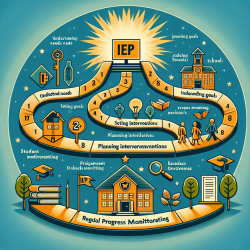Introduction: The Burnout Challenge in Special Education
Special education funding agencies face a growing challenge: ensuring quality educational outcomes while addressing the increasing burnout among educators and therapists. This burnout is often exacerbated by limited resources and the demanding nature of the work. However, recent advancements in online therapy services present an innovative solution to this pressing issue.
Virtual Therapy: A Data-Driven Solution
Virtual therapy, particularly in the form of online therapy services, offers a promising alternative to traditional in-person interventions. Data-driven decision-making is at the core of this approach, ensuring that interventions are not only effective but also efficient. By leveraging technology, therapists can reach more students, provide consistent support, and tailor interventions to individual needs, all while maintaining high standards of care.
Key Benefits of Online Therapy Services
- Increased Accessibility: Online therapy services break down geographical barriers, allowing students in remote or underserved areas to access high-quality therapeutic interventions.
- Cost-Effectiveness: Virtual therapy reduces the need for physical infrastructure and travel, which can significantly lower costs for schools and funding agencies.
- Data-Driven Customization: Advanced data analytics enable therapists to track progress in real-time, adjust interventions as needed, and provide evidence-based reports to stakeholders.
- Reduced Burnout: By providing flexible work environments and reducing administrative burdens, virtual therapy can alleviate some of the stressors contributing to therapist burnout.
Addressing Mental Health in Special Education
Mental health is a critical component of student success, particularly in special education. Online therapy services provide a unique opportunity to integrate mental health support into educational settings seamlessly. By offering consistent, tailored interventions, virtual therapy can address mental health challenges proactively, improving both academic and personal outcomes for students.
Implications for Special Education Funding Agencies
For special education funding agencies, investing in online therapy services represents a strategic decision to enhance educational outcomes while managing resources effectively. By supporting virtual therapy initiatives, agencies can ensure that funds are used efficiently to provide the greatest benefit to students. Moreover, data-driven reports generated through online platforms offer transparency and accountability, making it easier to justify funding allocations.
Conclusion: A Path Forward
As the educational landscape continues to evolve, embracing innovative solutions like virtual therapy is essential for addressing the challenges of burnout and resource allocation in special education. By focusing on data-driven outcomes, special education funding agencies can make informed decisions that benefit students, educators, and therapists alike. Together, we can create a more sustainable and effective educational environment for all.










